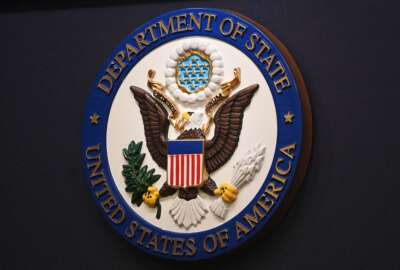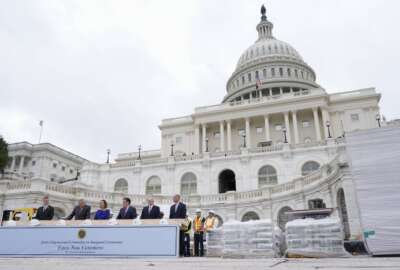Federal workers who telework one day a week could lose locality pay
Under the Federal Employee Return to Work Act teleworking employees would receive "Rest of U.S." locality pay even if they work in a region with a higher COLA.
- Federal employees who telework at least once a week would lose locality pay under a new House bill. Under the Federal Employee Return to Work Act, teleworking employees would receive "Rest of U.S." locality pay even if they live and work in a region with a higher cost of living. Rep. Dan Newhouse introduced the bill. He and Sen. Bill Cassidy led the bill during the last session of Congress. (Newhouse leads legislation to send federal employees back to work - Rep. Dan Newhouse)
- A new House bill aims to move federal employees to a performance-based pay system. If enacted, Federal Employee Performance and Accountability Act would change the way federal employee salaries are determined. Each federal employee would be ranked as either exceeding, meeting or falling below expectations of the job. Employees exceeding expectations could get a pay raise of up to 10%. Employees meeting expectations would see their pay stay the same. And employees below expectations would take a pay cut up to 10%. Employees meeting or exceeding expectations would also have access to additional benefits, such as telework options and technology upgrades. Rep. Claudia Tenney, a Republican from New York, reintroduced the bill in the House, and it was referred to the Oversight committee for consideration. (Federal Employee Performance and Accountability Act - Rep. Claudio Tenney (R-NY))
- Just over 88,000 federal employees retired in 2024. That is slightly less than the number who retired in 2023, just under 89,000 employees. New data from the Office of Personnel Management shows January continues to be the most popular month for federal employees to file retirement papers with February, March and August also seeing upticks in claims. It took OPM, on average, longer to process claims in December than November with the number of days rising to 57 from 55. Overall, OPM's retirement claims backlog remained steady at more than 13,800.(OPM retirement backlog sees new log - Federal News Network )
- The IRS workforce is growing to levels not seen in decades. Recent data shows the IRS workforce surpassed 100,000 total employees at the end of fiscal 2024. That's its highest level of staffing since 1997. But keeping that level of staffing won't be easy. The IRS has been tapping into a multi-billion-dollar modernization fund under the Inflation Reduction Act to grow its workforce. But Congress has cut those funds in half. The National Taxpayer Advocate said the agency faces challenges hiring enough employees to replace the number of workers t expects to retire in the coming years.(IRS workforce surpasses 100,000 employees, but faces ‘war of attrition’ retaining staff - Federal News Network)
- An Army doctor has pled guilty to charges of sexually abusing dozens of patients at a military hospital in Washington State. Prosecutors initially charged Maj. Michael Stockin with 52 counts of abusive sexual contact. At a court-martial this week, he agreed to plead guilty to 36 of those counts and five charges of indecent viewing. Separately, 22 of his former patients are suing the Army and the Defense Department, saying their negligence allowed the abuse to take place. (Army doctor pleads guilty to sexually abusing patients at military hospital - Associated Press)
- The Army is creating a new contract to bring dining facilities at five of its major bases into the 21st century. A request for proposals the Army Installation Management Command issued this week envisions an ID/IQ contract lasting up to five years. Officials want a vendor to renovate existing dining halls into "campus-style dining venues" and also operate them for up to five years. The winning contractor would build and run those venues at Fort Liberty, Fort Stewart, Fort Cavazos, Fort Drum and Fort Carson.
(Army creating new dining facilities contract - Army Installation Management Command/System for Award Management)
- Asian Americans are more highly represented in the federal workforce than the U.S. workforce overall. That's according to a new report from the Equal Employment Opportunity Commission. EEOC reports that Asian Americans make up 7.1% of the federal workforce, and 5.7% of the overall U.S. workforce. Even though they make up a larger portion of the federal workforce, Asian Americans are underrepresented in federal leadership roles. In its report, EEOC recommended updating the development program for the Senior Executive Service and adding emphasis on participant diversity.(Asian Americans in the federal sector - Equal Employment Opportunity Commission)
- The White House is turning up the heat on software vendors. Contractors providing software to agencies will soon have to do more to prove their following secure development practices. President Joe Biden's impending cybersecurity executive order will require software providers to submit to attestation and artifact documents that validate their security assertions to CISA. The draft EO said CISA then shall continuously validate a sample of those attestations. If they find problems, CISA will tell the contracting agency, and the Office of the National Cyber Coordinator will publicly post the results of the failed validation and possibly refer the failed attestation to the Justice Department. Biden is expected to sign the EO in the coming week.(White House plans to hold software vendors more accountable - Draft cyber EO)
Copyright © 2025 Federal News Network. All rights reserved. This website is not intended for users located within the European Economic Area.
Michele Sandiford
Michele Sandiford is a digital editor at Federal News Network.






